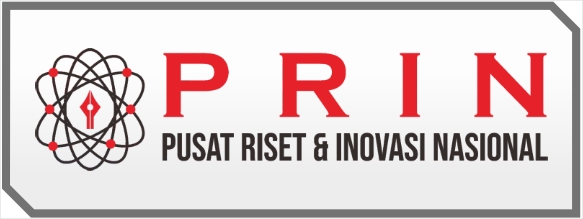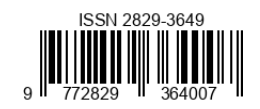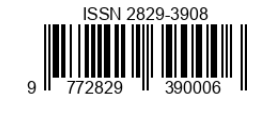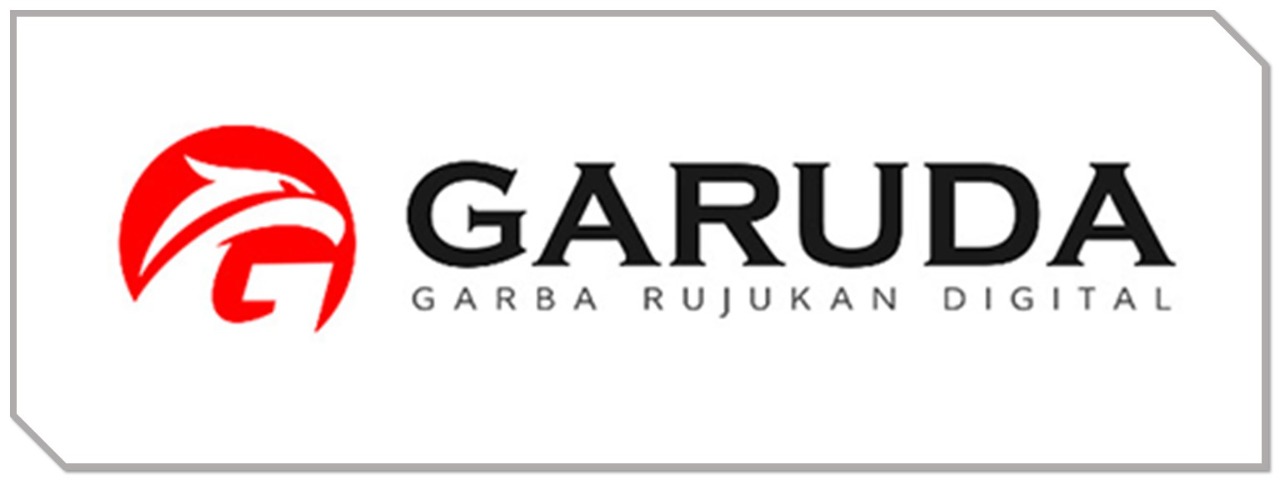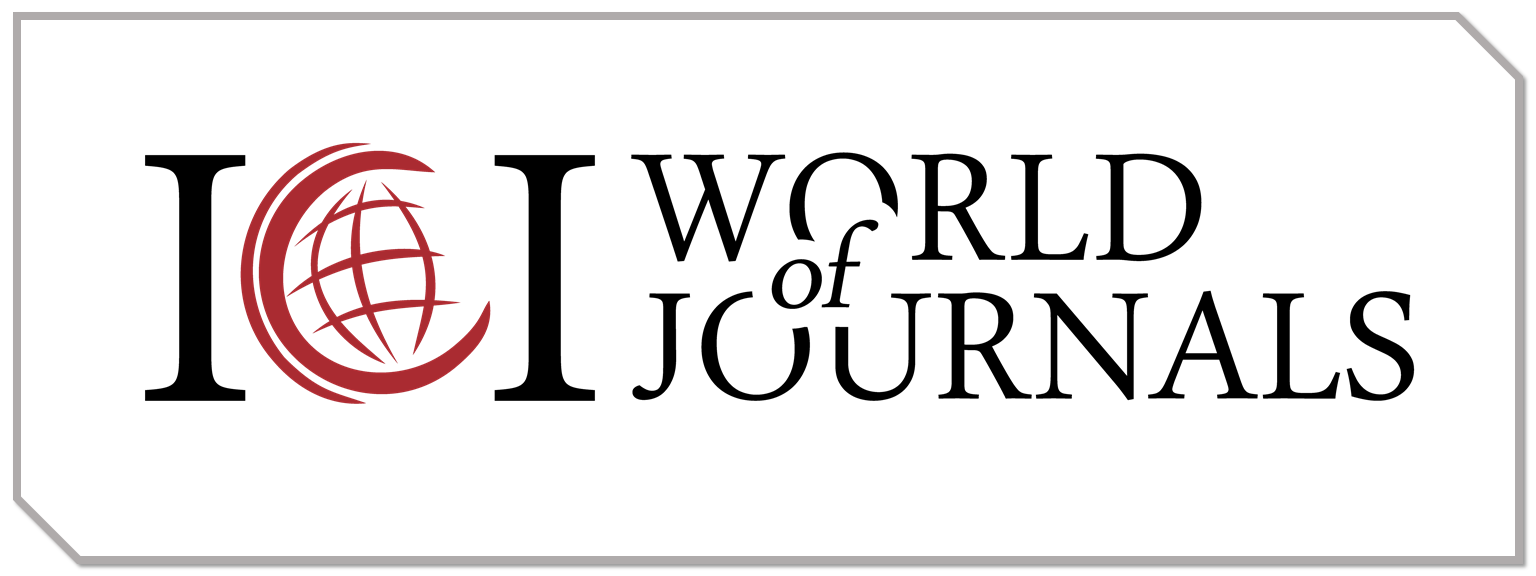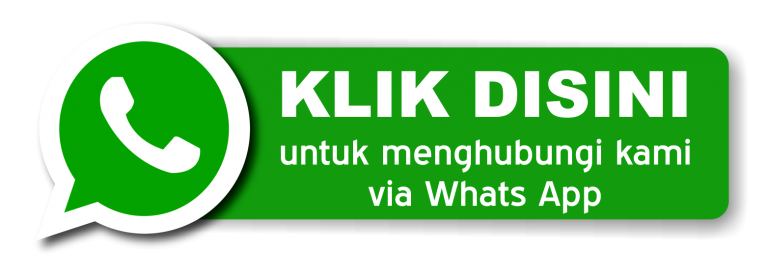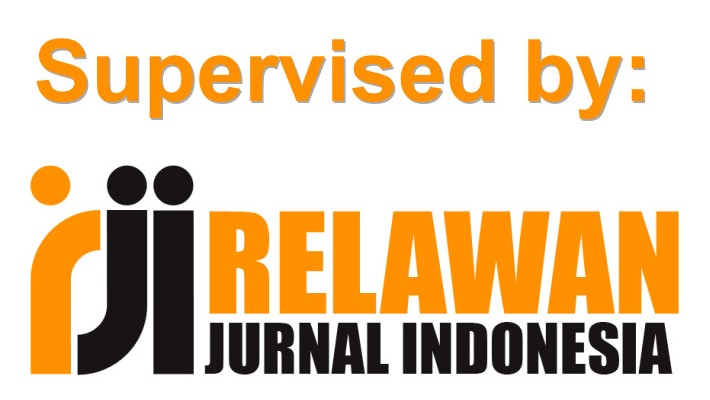Meta-analysis Study: The Effect of the Independent Curriculum Integrated Project Based Learning Model on Student Learning Outcomes in Natural Science Materials
DOI:
https://doi.org/10.56910/literacy.v2i1.408Keywords:
PjBL, Learning, Independent Curriculum, Learning OutcomesAbstract
In the era of Revolution 5.0, world society experienced rapid development, especially in the world of education. Education today has enabled technology to assist the learning process. The learning process in the Industrial Revolution era (5.0) required students to master learning technology. In addition, teachers have an important role as educators in facilitating students. However, teachers have not been able to carry out learning in accordance with the independent curriculum. The independent curriculum remains the primary impediment for teachers in encouraging student learning outcomes in the classroom. In the independent curriculum, students must be creative and innovative in their learning. Independent curriculum-guided teachers must be able to apply the project-based learning model. The purpose of this study was to analyze the effect of the project-based, integrated learning model of the independent learning curriculum on student learning outcomes. This type of research is a type of meta-analysis research. The data source comes from an analysis of 15 national and international journals indexed by SINTA, Copernicus International, and DOAJ. The search for data sources comes from the Google Scholar database and the Eric Journal. The data collection technique is a direct observation technique that involves tracing articles that have a relationship with the research variables. The search keywords for data sources are the PjBL learning model, independent curriculum, and learning outcomes. The data analysis technique is a quantitative statistical technique, with the help of the OpenMEE application. Data analysis was performed by calculating the effect size, standard deviation, average, and N-gain values. The results of the study concluded that the PjBL learning model integrated with the independent curriculum had a significant influence on student learning outcomes. This can be seen from the effect size value of 2.67, SD of 6.03, average student score of 89.56, and N-Gain of 4.20. The use of the PjBL model in the independent curriculum benefits both teachers and students as they prepare for the twenty-first century. In order to implement the Pjbl model in schools, teachers must be professionals
References
Abdul Razak , Tomi Apra Santosa, Lufri , Zulyusri. (2021). Meta-Analysis: The Effect of HOTS (Higher Order Thinking Skill) Questions on Students’ Science Literacy Skills and Lesson Study on Ecology and Environmental Materials During the Covid-19 Pandemic Abdul. Bioedusiana: Jurnal Pendidikan Biologi, 6(1), 79–87.
Apra, T., 1, S., Razak, A., Arsih, F., Sepriyani, E. M., & Hernaya, N. (2021). Meta-Analysis: Science Learning Based on Local Wisdom Against Preserving School Environments During the Covid-19 Pandemic. Journal of Biology Education, 10(2), 244–251. http://journal.unnes.ac.id/sju/index.php/ujbe
Asfihana, R., Salija, K., Iskandar, & Garim, I. (2022). Students’ English Learning Experiences on Virtual Project-Based Learning Instruction. International Journal of Language Education, 6(2), 196–209. https://doi.org/10.26858/ijole.v6i2.20506
Ayu Made Dwiyani Putri, G., Wayan Rati, N., & Putu Putrini Mahadewi, L. (2019). Pengaruh Model Pembelajaran Berbasis Proyek Terhadap Hasil Belajar Ipa. Journal of Education Technology, 3(2), 65–72.
Azzahra Tusyadi, N., Erwin, & Pranata, K. (2021). Pengaruh Model Pembelajaran Project Based Learning Terhadap Minat Belajar Siswa IPA. Jurnal Educatio, 7(4), 1659–1664. https://doi.org/10.31949/educatio.v7i4.1500
Brewer, M., Lewis, S., & Ferns, S. (2022). Interdisciplinary work-integrated learning: Australian university project-based learning pilots and practices. International Journal of Work - Integrated Learning, 23(1), 17–30. https://www.proquest.com/scholarly-journals/interdisciplinary-work-integrated-learning/docview/2671831504/se-2%0Ahttps://media.proquest.com/media/hms/PFT/1/p1J9N?_a=ChgyMDIyMDcxODE2NDE1MzY3Nzo2OTU4MDkSBTk5NDk1GgpPTkVfU0VBUkNIIg4xMDkuMTU1LjE2My40NioHNDM3OT
Cahyaningsih, R. N., Siswanto, J., & Sukamto, S. (2020). Keefektifan Model Project Based Learning Berbantu Multimedia Power Point Terhadap Hasil Belajar IPA. Jurnal Penelitian Dan Pengembangan Pendidikan, 4(1), 34. https://doi.org/10.23887/jppp.v4i1.25014
Chireac, S. M., & Vegas, R. A. M. (2022). A Bibliometric Analysis of the Spanish Scientific Production on Teaching Oral Communication Between 2010 and 2020. TEM Journal, 11(4), 1620–1625. https://doi.org/10.18421/TEM114-24
Dewi, N. K. N. A., Garminah, N. N., & Pudjawan, K. (2013). Pengaruh model pembelajaran berbasis poyek (project based learning) terhadap hasil belajar ipa siswa kelas IV SDN 8 Banyuning. Mimbar PGSD Undiksha, 1(1), 1–10.
Dinantika, H. K., Suyanto, E., & Nyeneng, I. D. P. (2019). Pengaruh Penerapan Model Pembelajaran Project Based Learning Terhadap Kreativitas Siswa Pada Materi Energi Terbarukan. Titian Ilmu: Jurnal Ilmiah Multi Sciences, 11(2), 73–80. https://doi.org/10.30599/jti.v11i2.473
Fahrezi, I., Taufiq, M., Akhwani, A., & Nafia’ah, N. (2020). Meta-Analisis Pengaruh Model Pembelajaran Project Based Learning Terhadap Hasil Belajar Siswa Pada Mata Pelajaran IPA Sekolah Dasar. Jurnal Ilmiah Pendidikan Profesi Guru, 3(3), 408. https://doi.org/10.23887/jippg.v3i3.28081
Fakhrurrozi, H., & Hamdani, F. (2022). Quality Management of Learning As an Effort To Increase School Accreditation Value During the Pandemic. Paedagogia: Jurnal Pendidikan, 11(2), 243–256. https://doi.org/10.24239/pdg.vol11.iss2.320
Febriyanti, A. F., Susanta, A. S., & Muktadir, A. M. (2020). Pengaruh Model Pembelajaran Project Based Learning (Pjbl) terhadap Kemampuan Berpikir Kreatif dalam Pembelajaran Tematik Muatan Pelajaran IPA Peserta Didik Kelas V SD Negeri. Jurnal Pembelajaran Dan Pengajaran Pendidikan Dasar, 3(2), 176–183. https://doi.org/10.33369/dikdas.v3i2.14130
Ferry, D., Santosa, T., & Kamil, D. (2020). Pengetahuan Mahasiswa Institut Agama Islam Negeri Kerinci Tentang Teori Asal Usul Manusia. BIOEDUCA : Journal of Biology Education, 1(1), 11. https://doi.org/10.21580/bioeduca.v1i1.4945
Festiyed, Novitra, F., Yohandri, & Asrizal. (2022). Networked-based Inquiry: An Effective Physics Learning in the New Normal COVID-19 Era in Indonesia. International Journal of Instruction, 15(2), 997–1016. https://doi.org/10.29333/iji.2022.15255a
Firman, M. A., Ertikanto, C., & Abdurrahman, A. (2019). Description of meta-analysis of inquiry-based learning of science in improving students’ inquiry skills. Journal of Physics: Conference Series, 1157(2). https://doi.org/10.1088/1742-6596/1157/2/022018
Fisher, D. (2021). European Journal of Educational Research. European Journal of Educational Research, 11(1), 69–81.
Fradila, E., Razak, A., Santosa, T. A., Arsih, F., & Chatri, M. (2021). Development Of E-Module-Based Problem Based Learning (PBL) Applications Using Sigil The Course Ecology And Environmental Education Students Master Of Biology. International Journal of Progressive Sciences and Technologies (IJPSAT, 27(2), 673–682. http://ijpsat.ijsht-journals.org
Girgin, D. (2020). Evaluation of Project-Based Learning Process of Gifted Children via Reflective Journals. International Journal of Curriculum and Instruction, 12(2), 772–796.
Hillmayr, D., Ziernwald, L., Reinhold, F., Hofer, S. I., & Reiss, K. M. (2020). The potential of digital tools to enhance mathematics and science learning in secondary schools: A context-specific meta-analysis. Computers and Education, 153(September 2018), 103897. https://doi.org/10.1016/j.compedu.2020.103897
Holder, L. N., Scherer, H. H., & Herbert, B. E. (2017). Student learning of complex earth systems: A model to guide development of student expertise in problem-solving. Journal of Geoscience Education, 65(4), 490–505. https://doi.org/10.5408/17-261.1
Hutapea, J., & Simanjuntak, M. P. (2017). PENGARUH MODEL PEMBELAJARAN PROJECT BASED LEARNING (PjBL) TERHADAP HASIL BELAJAR SISWA SMA. INPAFI (Inovasi Pembelajaran Fisika), 5(1), 183–193. https://doi.org/10.24114/inpafi.v5i1.6597
Ichsan, Suhaimi, Amalia, K. N., Santosa, T. A., & Yulianti, S. (2022). Pengaruh Model Pembelajaran Problem Based Learning Berbaisis TPACK Terhadap Ketrampilan Literasi Sains Dalam Pembelajaran IPA Siswa Tingkat SD Sampai SMA: Sebuah Meta-Analisis. Jurnal Pendidikan Dan Konseling, 4(5), 2173–2181.
Jagantara, M. W., Adnyana, P. B., & Widyanti, N. L. P. M. (2014). Pengaruh Model Pembelajaran Berbasis Proyek (Project Based Learning) Terhadap Hasil Belajar Biologi Ditinjau Dari Gaya Belajar Siswa SMA. E-Journal Program Pascasarjana Universitas Pendidikan Ganesha Program Studi IPA, 4(1), 1–13.
Jalinus, N., Syahril, Nabawi, R. A., & Arbi, Y. (2020). How project-based learning and direct teaching models affect teamwork and welding skills among students. International Journal of Innovation, Creativity and Change, 11(11), 85–111.
Jazuli, L. O. A., Solihatin, E., & Syahrial, Z. (2019). The Effects of Brain-Based Learning and Project-Based Learning Strategies on Student Group Mathematics Learning Outcomes Student Visual Learning Styles. Pedagogical Research, 4(4), 4–11. https://doi.org/10.29333/pr/5949
Kara, A., Anagün, Ş. S., Boyacı, Ş. D., & Yaşar, S. (2022). Investigating the link between teachers perceptions of 21st century skills efficiency and students perceptions of learning experience: Mediating role of teacher s self-efficacy. Journal of Pedagogical Research, 6(4), 50–65. https://doi.org/10.33902/jpr.202215268
Kılıç, İ. (2022). The effect of project-based learning approach on student achievement in life science course in primary education. African Educational Research Journal, 10(3), 321–328. https://doi.org/10.30918/aerj.103.22.046
Kristiana, T. F., & Radia, E. H. (2021). Meta Analisis Penerapan Model Problem Based Learning Dalam Meningkatkan Hasil Belajar IPA Siswa Sekolah Dasar. Jurnal Basicedu, 5(2), 818–826. https://doi.org/10.31004/basicedu.v5i2.828
Made Sri Utami, N., & Gede Astawan, I. (2020). Meta-Analisis Pengaruh Model Problem Based Learning Terhadap Hasil Belajar IPA Siswa Sekolah Dasar. Jp2, 3(3), 416–427.
Mursid, R., Saragih, A. H., & Hartono, R. (2022). The Effect of the Blended Project-based Learning Model and Creative Thinking Ability on Engineering Students’ Learning Outcomes. International Journal of Education in Mathematics, Science and Technology, 10(1), 218–235. https://doi.org/10.46328/ijemst.2244
Muthoharoh, M., & Elvina, I. (2022). Forming Student Character Through the Islamic Boarding School Programs At Smp-It Tarbiyatu Banin Dukuhpuntang Cirebon. Paedagogia: Jurnal Pendidikan, 11(2), 225–242. https://doi.org/10.24239/pdg.vol11.iss2.315
Naila, I. (2020). The Effectiveness of Science Project Learning based on Entrepreneurship Model to Improve Elementary Students’ Collaborative Skills. Mimbar Sekolah Dasar, 7(3), 348–361. https://doi.org/10.17509/mimbar-sd.v7i3.28676
Nilsook, P., Chatwattana, P., & Seechaliao, T. (2021). The Project-based Learning Management Process for Vocational and Technical Education. Higher Education Studies, 11(2), 20. https://doi.org/10.5539/hes.v11n2p20
Ningsih, M. Y., Efendi, N., & Sartika, S. B. (2021). Pengaruh Model Project Based Learning Terhadap Berpikir Kreatif Peserta Didik dalam Pembelajaran IPA. Jurnal Inovasi Pendidikan Sains (JIPS), 2(2), 42–51. https://doi.org/10.37729/jips.v2i2.1403
Nurcahyani, D., Yuberti, Irwandani, Rahmayanti, H., Ichsan, I. Z., & Rahman, M. M. (2021). Ethnoscience learning on science literacy of physics material to support environment: A meta-analysis research. Journal of Physics: Conference Series, 1796(1). https://doi.org/10.1088/1742-6596/1796/1/012094
Oktarina, K., Santosa, T. A., Razak, A., & Ahda, Y. (2021). Meta-Analysis : The Effectiveness of Using Blended Learning on Multiple Intelligences and Student Character Education during the Covid-19 Period. IJECA International Journal of Education & Curriculum Application, 4(3), 184–192.
Öztürk, Ö. T. (2023). Examination of 21st Century Skills and Technological Competences of Students of Fine Arts Faculty. International Journal of Education in Mathematics, Science and Technology, 11(1), 115–132. https://doi.org/10.46328/ijemst.2931
Payoungkiattikun, W., Intanin, A., Thongsuk, T., & Hemtasin, C. (2022). Project-Based Learning Model to Promote Preservice Science Teachers’ Metacognitive Skills. Journal of Educational Issues, 8(2), 576. https://doi.org/10.5296/jei.v8i2.20282
Pratama, H., & Prastyaningrum, I. (2016). Pengaruh Model Pembelajaran Project Based Learning Berbantuan Media Pembelajaran Pembangkit Listrik Tenaga Mikrohidro Terhadap Kemampuan Berpikir Kritis. Jurnal Penelitian Fisika Dan Aplikasinya (JPFA), 6(2), 44. https://doi.org/10.26740/jpfa.v6n2.p44-50
Rahimi, A. R., & Tafazoli, D. (2022). The role of university teachers’ 21st-century digital competence in their attitudes toward ICT integration in higher education: Extending the theory of planned behavior. JALT CALL Journal, 18(2), 238–263. https://doi.org/10.29140/jaltcall.v18n2.632
Ridwan, M. R., Hadi, S., & Jailani, J. (2022). A meta-analysis study on the effectiveness of a cooperative learning model on vocational high school students’ mathematics learning outcomes. Participatory Educational Research, 9(4), 396–421. https://doi.org/10.17275/per.22.97.9.4
Rofik, A., Setyosari, P., Effendi, M., & Sulto. (2022). The Effect of Collaborative Problem Solving & Collaborative Project-Based Learning Models to Improve The Project Competences of Pre-Service Teachers. Pegem Egitim ve Ogretim Dergisi, 12(3), 130–143. https://doi.org/10.47750/pegegog.12.03.15
Sanjaya, D. B., Suartama, I. K., Suastika, I. N., & Sukadi. (2022). The effect of the conflict resolution learning model and portfolio assessment on the students learning outcomes of civic education. International Journal of Instruction, 15(1), 473–488. https://doi.org/10.29333/iji.2022.15127a
Santosa, T. A., Putri, R. D. S. H., Sumarmin, R., Putri, D. H., & Razak, A. (2021). Meta-Analysis: Effectiveness of artificial feeding to increase growth rate and reproduction quality of Monopterus albus species. Jurnal Biologi Udayana, 25(1), 95. https://doi.org/10.24843/jbiounud.2021.v25.i01.p11
Santosa, T. A., Razak, A., Lufri, L., Zulyusri, Z., Fradila, E., & Arsih, F. (2021). Meta-Analisis: Pengaruh Bahan Ajar Berbasis Pendekatan STEM Pada Pembelajaran Ekologi. Journal of Digital Learning and Education, 1(01), 1–9. https://doi.org/10.52562/jdle.v1i01.24
Santosa, T. A., Sepriyani, E. M., Lufri, L., & Zulyusri, Z. (2021). Meta-Analysis: Penggunaan Modul Berbasis Hots Pada Materi Ekologi Dan Lingkungan Di Sma. Jurnal Eduscience, 8(1), 53–56. https://doi.org/10.36987/jes.v8i1.1976
SANTOSA, T. A., & YULIANTI, S. (2020). Pengaruh Pemberian Kuis Terhadap Peningkatan Motivasi Belajar Biologi Siswa Di Sma Negeri 7 Kerinci. Edusaintek : Jurnal Pendidikan, Sains Dan Teknologi, 7(2), 1–18. https://doi.org/10.47668/edusaintek.v7i2.58
Shi, L., & Kopcha, T. J. (2022). Moderator effects of mobile users’ pedagogical role on science learning: A meta-analysis. British Journal of Educational Technology, 53(6), 1605–1625. https://doi.org/10.1111/bjet.13210
Sudarsono, Kartono, Mulyono, & Mariani, S. (2022). The Effect of STEM Model Based on Bima’s Local Cultural on Problem Solving Ability. International Journal of Instruction, 15(2), 83–96. https://doi.org/10.29333/iji.2022.1525a
Suhaimi, Santosa, T. A., & Aprilisia, S. (2022). Analisis Pendekatan Saintifik Dalam Pembelajaran IPA Selama Pandemi Covid-19 di Sekolah Dasar. Jurnal Didika: Wahana Ilmiah Pendidikan Dasar, 8(1), 92–101.
Suharyat, Y., Santosa, T. A., & Satria, E. (2023). The Effectiveness of STEM-Based Learning in Teaching 21 st Century Skills in Generation Z Student in Science Learning : A. 9(1). https://doi.org/10.29303/jppipa.v9i1.2517
Suharyat, Y., Santosa, T. A., Yulianti, S., & Amalia, K. N. (2022). International Journal of Education and Literature ( IJEL ) Literature Review : TPACK-Based Science Learning in Supporting Teacher Quality in Indonesia. 2014–2020.
Suryaningsih, A., & Koeswanti, H. (2021). Perbedaan Model Pembelajaran Problem Based Learning dan Project Based Learning Terhadap Peningkatan Kemampuan Berfikir Kritis IPA Siswa SD. MIMBAR PGSD Undiksha, 9(1), 40. https://doi.org/10.23887/jjpgsd.v9i1.33196
Suwarno, S., Wahidin, W., & Nur, S. H. (2020). Project-based learning model assisted by worksheet: It’s effect on students’ creativity and learning outcomes. JPBI (Jurnal Pendidikan Biologi Indonesia), 6(1), 113–122. https://doi.org/10.22219/jpbi.v6i1.10619
Syawaludin, A., Prasetyo, Z. K., Jabar, C. S. A., & Retnawati, H. (2022). The Effect of Project-based Learning Model and Online Learning Settings on Analytical Skills of Discovery Learning, Interactive Demonstrations, and Inquiry Lessons. Journal of Turkish Science Education, 19(2), 608–621. https://doi.org/10.36681/tused.2022.140
Tamur, M., Fedi, S., Sennen, E., Marzuki, Nurjaman, A., & Ndiung, S. (2021). A meta-analysis of the last decade STEM implementation: What to learn and where to go. Journal of Physics: Conference Series, 1882(1). https://doi.org/10.1088/1742-6596/1882/1/012082
Taupik, R. P., & Fitria, Y. (2021). Pengaruh Model Pembelajaran Project Based Learning terhadap Pencapaian Hasil Belajar IPA Siswa Sekolah Dasar. Jurnal Basicedu, 5(3), 1525–1531. https://doi.org/10.31004/basicedu.v5i3.958
Uswatun Chasanah, A. R., Khoiri, N., & Nuroso, H. (2016). Efektivitas Model Project Based Learning terhadap Keterampilan Proses Sains dan Kemampuan Berpikir Kreatif Siswa pada Pokok Bahasan Kalor Kelas X SMAN 1 Wonosegoro Tahun Pelajaran 2014/2015. Jurnal Penelitian Pembelajaran Fisika, 7(1), 19–24. https://doi.org/10.26877/jp2f.v7i1.1149
Utami, R. P., Probosari, R. M., & Fatmawati, U. (2015). Pengaruh Model Pembelajaran Project Based Learning Berbantu Instagram Terhadap Kemampuan Berpikir Kreatif Siswa Kelas X Sma Negeri 8 Surakarta. Bio-Pedagogi, 4(1), 46–52.
Wijayanto, T., Supriadi, B., & Nuraini, L. (2020). Pengaruh Model Pembelajaran Project Based Learning Dengan Pendekatan Stem Terhadap Hasil Belajar Siswa Sma. Jurnal Pembelajaran Fisika, 9(3), 113. https://doi.org/10.19184/jpf.v9i3.18561
Wright, W. T. (2020). Within, without, and amidst: A review of literacy educators’ perceptions of participatory media technologies. Journal of Media Literacy Education, 12(2), 1–12. https://doi.org/10.23860/JMLE-2020-12-2-1
Yayat Suharyat et al. (2022). Meta-Analisis Penerapan Model Pembelajaran Problem Based Learning Untuk Meningkatkan Ketrampilan Abad-21 Siswa Dalam Pembelajaran IPA Universitas Pahlawan Tuanku Tambusai. Jurnal Pendidikan Dan Konseling, 4(5), 5081–5088.
Yusuf, M., Witro, D., Diana, R., Santosa, T. A., Alfikri, A. ‘Alwiyah, & Jalwis, J. (2020). Digital Parenting to Children Using The Internet. Pedagogik Journal of Islamic Elementary School, 3(1), 1–14. https://doi.org/10.24256/pijies.v3i1.1277
Yüzüak, A. V., & Erten, S. (2022). Teachers’ Views About Turkey’s Zero Waste Project (TZWP). Journal of Turkish Science Education, 19(1), 71–81. https://doi.org/10.36681/tused.2022.110
Zorlu, Y., & Zorlu, F. (2021). Investigation of The Relationship Between Preservice Science Teachers’ 21st Century Skills and Science Learning Self-Efficacy Beliefs with Structural Equation Model. Journal of Turkish Science Education, 18(1), 1–16. https://doi.org/10.36681/tused.2021.49
Zulkifli, Z., Satria, E., Supriyadi, A., & Santosa, T. A. (2022). Meta-analysis : The effectiveness of the integrated STEM technology pedagogical content knowledge learning model on the 21st century skills of high school students in the science department. 5(1), 32–42.






